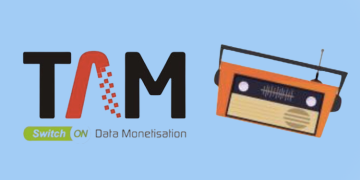The online marketing space has recently received a major update. Web browsers like Google Chrome, Safari, and Firefox are integrating anti-tracking technologies in compliance with global data privacy policies such as EU-GDPR.
What does this mean for marketers – and the future of the online advertising domain? Here are a few things that marketers should know about the new updates and how partnering with top affiliate marketing networks can help them navigate these changes:
- Prohibition of cookie and fingerprint tracking
In a bid to strengthen user privacy, leading internet browsers are restricting the use of cookies by site owners to track user behaviour. The new rollouts will make the tracking of first-party and third-party cookies much more difficult when using conventional marketing tools.
Under the latest Safari Intelligent Tracking Prevention update, for instance, the time that first-party cookies will be available has been reduced from 7 days to 24 hours. Fingerprint tracking, which leverages a more complex set of data to track users’ digital activity across multiple browsers and even in Chrome’s incognito mode, will also be curtailed by Google. All of this leaves advertisers with very little time to gather user information for ad targeting. Publishers are also expected to face challenges with ad attribution and revenue generation.
The anti-tracking algorithms being employed by these browsers, however, do not spell the end of online marketing. Instead, the updates will encourage marketers to come up with innovative, safer, and more ethical tracking solutions to reach their target audience. Top affiliate marketing networks have already developed and deployed legal cutting-edge solutions to address this shift toward stronger user privacy.
Apart from modifying their cookie generation process and setting up ad integrations directly through servers (XML, API, or postback requests), affiliate networks such as Admitad are leveraging cookieless tracking solutions. This helps their affiliates comply with the new norms without any concomitant impact on the ad performance delivered through their platforms. Advertisers can, therefore, continue presenting users with relevant content to improve the engagement between users and advertisements.
- Improved, user-friendly tracking
The strategies being created by affiliate marketing platforms leverage advanced digital tools to streamline their content to a targeted demographic. This includes creating unique tracking tools such as unique promo codes for each affiliate to eliminate the challenge faced with attribution and external browser changes. As a result, affiliate networks are able to deliver unparalleled reliability, transparency, and measurability to both advertisers and publishers.
- Stringent market laws equal safer marketing
According to a recent report, Indian advertisers lose nearly half of their ad spends on account of bot-driven ad frauds, bogus schemes, fake traffic hits, and so on. Strict user tracking regulations ensure that such fraudulent schemes are checked and that advertisers do not suffer any setbacks.
For instance, affiliate networks are leveraging cutting-edge antifraud and tracking technologies to ensure that brands only engage with genuine audiences. By automating tracking, management, communication, and reporting, they also reduce the administrative burden of creating in-house teams to manage affiliate programs. In this way, the new updates are beneficial to not just users but marketers as well.
- Better performance tracking
Recent data privacy policies such as the EU-GDPR prohibit both governments and corporate bodies from keeping track of users’ personal data and digital activities. This, in effect, restrains advertisers from accessing a list of emails to suggest marketing benefits such as discounts, coupons, and gift cards to users.
However, because of this, advertisers will be able to better track their own sales activities and subsequent performance. The targeting of specific demographics via specific means will enable marketers to determine sales attribution in a more effective manner. This will allow them to learn which media channel is most active and which needs more focus.
- Enhanced user-brand engagement
Further, as new marketing strategies will be focused on respecting user privacy, it will boost users’ confidence in the advertisements that they engage with. This will, in turn, drive users to engage with respective brands as they will be assured of their legitimacy.
In today’s increasingly tech-driven world, the new updates on browsers are a welcome change. Affiliate marketing platforms such as Admitad understand the critical need of a strict regulatory framework governing digital activities and therefore abide by them when it comes to conducting online marketing. This helps to create a much safer and more effective digital marketing ecosystem where all stakeholders derive more value from their interactions.
This article is authored by Neha Kulwal, Country Manager, Admitad India.
















